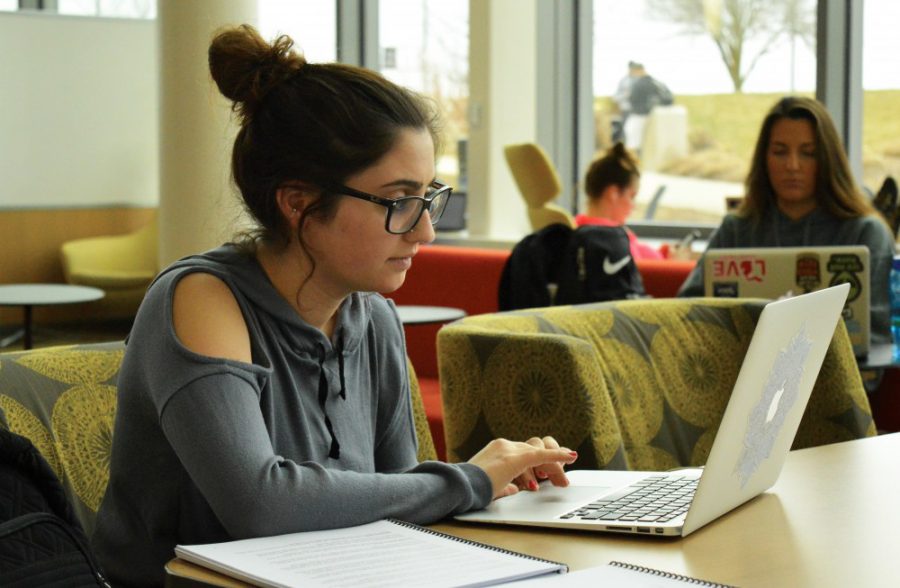GVPD and Counseling Center team up to help with mental health
Mar 29, 2021
Throughout the course of a year, a student can encounter many things. For the Grand Valley Police Department, they know this all too well as they have built relationships in conjunction with other groups in order to help students stay safe and healthy. Although Mental Health Awareness Month is not until May, GVPD responds to mental health calls year-round.
“Our involvement is generally going to be prompted by an emergency call,” said Captain Stoll of the GVPD. “We’re usually the frontline first responders to students who are in crisis.”
Although the number of students on campus is substantially less than a normal year, it is hard to tell whether or not the GVPD is receiving more calls for mental health than it would in any given year.
With many classes being held virtually the state still adhering to COVID-19 guidelines, Stoll says it can cause people to feel more isolation and detachment which can lead to depression and other forms of mental health struggles.
“I think there’s a different set of problems and issues too because people aren’t as in-person connected as much as they have been in the past,” Stoll said.
The GVPD understands that mental health is an underlying factor involved in some of the incidents they respond to. Because their goal is to keep students safe, they have built strong relationships with the GVSU’s Counseling Center. It is not uncommon for the GVPD to contact the counselor on duty so they can help provide guidance to the officer or the student in crisis.
“We see people come in every day for services,” said Eric Klingensmith from the University Counseling Center. “This is not uncommon this time of year when we start seeing more referrals around midterms, after spring break, heading towards graduation so traditionally our numbers do go up a little bit.”
Klingensmith is the Associate Director and Director for Clinical and Crisis Services within the counseling center at GVSU. The counseling center sees students for a variety of issues. Whether the visits are for mental health, food insecurities, or financial needs, the counseling center is there to offer support for students and to hopefully help prevent other situations from happening.
Although the goal is to ultimately help students be safe and succeed, the counseling center has built strong relationships with the GVPD and the housing staff because of the work and training they all work together on. These things include crisis prevention and mental health awareness.
In terms of interaction with the GVPD, the counseling center takes almost a consultation approach. The counseling center may also help talk to the student for immediate crisis intervention, as well as things like de-escalating the situation and potentially following up with the student.
“One of the goals of crisis intervention is to help students get through that crisis, and stay safe,” Klingensmith said. “But sometimes it’s an opportunity where people may not have normally sought services and here’s an opportunity in a time of crisis, they realize they need some help.”
One of the most important things the counseling center offers is QPR (Question, Persuade, and Refer) training for suicide prevention. The goal of this training is to help people learn potential signs of someone who is suicidal, while also asking them if they are contemplating hurting themselves. The person learning this training is also taught how to persuade the person to get help or report it to the resident assistant or to the counseling center.
Klingensmith said there are so many people and groups that want to help students be successful through tough times. He also said if someone is experiencing things like depression, anxiety, or other mental health issues, it is better to reach out to someone early for help.
For students looking for training, tips, or information regarding the counseling center, here is the link to the website. https://www.gvsu.edu/counsel/about-us-university-counseling-center-244.htm























